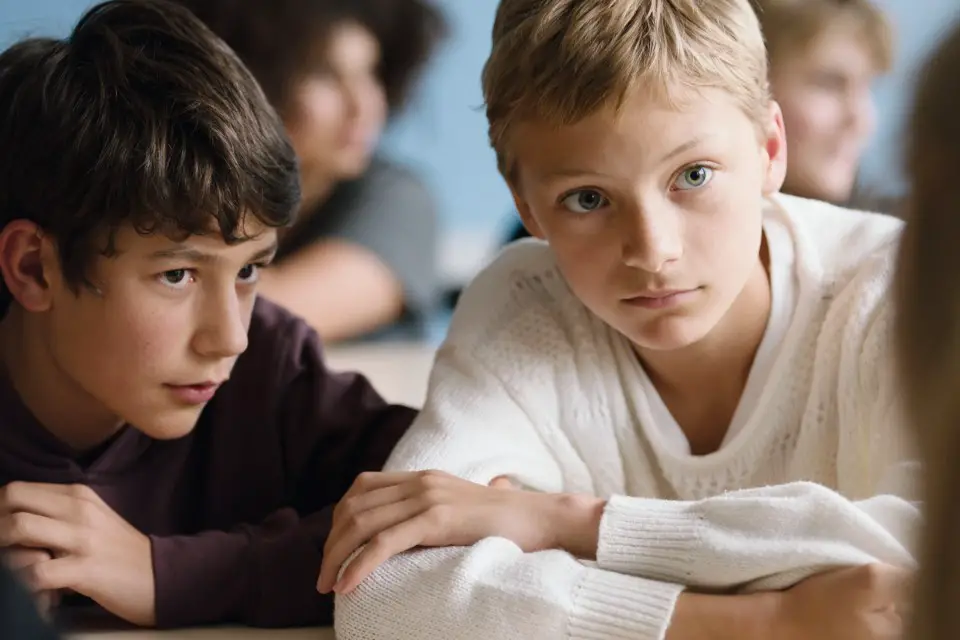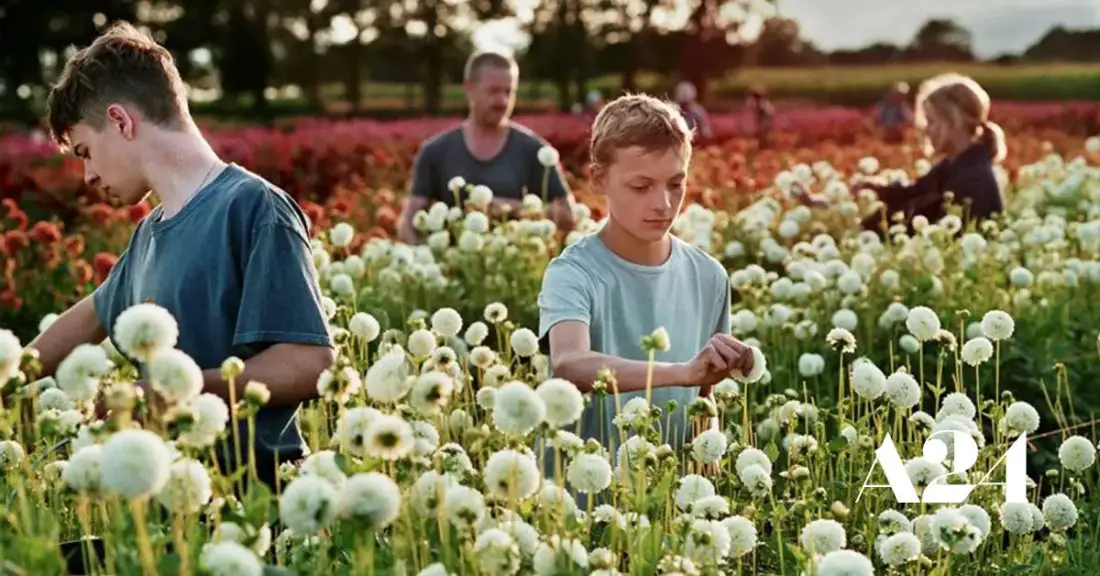Houston Cinema Arts Festival: ‘Close’ Review

Close. A word that inspires the immediate image of two objects sharing the space. On a more fundamental level, however, the word denotes a sense of emotional intimacy. Thirteen-year-olds Léo (Eden Dambrine) and Rémi (Gustav de Waele) exemplify every meaning of the word. They spend every waking moment together during the summer, sharing whatever thoughts and feelings pop into their mind as well as the space between them. They make themselves complete with each other’s presence. That is, until they start the new school year. What to them is innocent comfort is immediately commented on by their fellow students. Gradually Léo grows insecure in his friendship with Rémi, distancing himself unknowingly as he wrestles with how Rémi might feel about him.
READ: ‘Glass Onion: A Knives Out Mystery’ Review: “A Layered Fun Time”
Writer-director Lukas Dhont and co-writer Angelo Tisjssens zero in on something remarkable in the first half of Close. One of the great unspoken traumas of youth is friendship break-up. The lush times spent rolling around in the fields with Rémi’s mother (Émilie Dequenne) give way to avoidance on Léo’s part. Dambrine’s work here is almost uncomfortably human, and particularly accomplished for a child actor. He keeps a stone face, even when confronted by Rémi. However, beneath his piercing blue eyes is a sea of emotions. In other words, his eyes hold many questions that he’s asking himself. Is he growing apart from his friend? Does the other kids’ teasing make him want to pull away? Is he in love with Rémi? Gustav de Waele is no slouch when it comes to child actors, either.
He communicates a gut-wrenching kind of pain; not knowing why your most cherished person no longer seems to want to be around you. Tears welling up in his eyes, his emotions speak volumes. Moreover, the disintegrating relationship between Léo and Rémi is shrouded by the question of what their real feelings are towards each. Namely: are they gay? Close stands tall in its bravery in exploring the confusing gray area of friendships vs. relationships between these two boys, something that’s still somewhat of a taboo. The homoerotic tension between them, which Léo tries to avoid thinking about entirely, becomes their undoing. Dhont deserves recognition for his success at tackling an uncomfortable dynamic that can very much exist between friends of the same sex coming of age. Léo’s torturous pain and the compartmentalizing of it is what internalized homophobia looks like.
READ: Houston Cinema Arts Festival: ‘Women Talking’ Review
Whereas the first half of Close strides gallantly into uncharted territory, the second half is a more traditional affair. A tragedy marks the distinct shift into the familiar, becoming a drama about grief and guilt. All the way through Dambrine’s performance remains a standout, and Dequenne gets time to shine in some real heavy scenes. That said, there’s a feeling that the easy way out was taken. The emotional turmoil of a friendship falling apart under the weight of confusing feelings serves as far too strong a foundation to simply become another story of dealing with loss. Dhont, nevertheless, understands humans and their emotions to a stunning degree. In fact, he closes the gap between familiar subject matter and profusely genuine sentiment with a vigor that shakes the tears out of an audience like it’s nothing.
As one of the buzzier international films this Oscar season, Close flirts with becoming a humanist masterpiece. By ditching what makes it so challenging and progressive in its second half, that notion fades, but it’s still a largely successful drama that treats the emotions of its child protagonists with the same respect often given to adult characters. – James Preston Poole
Rating: 7/10
Close does not yet have a release date in the United States.





